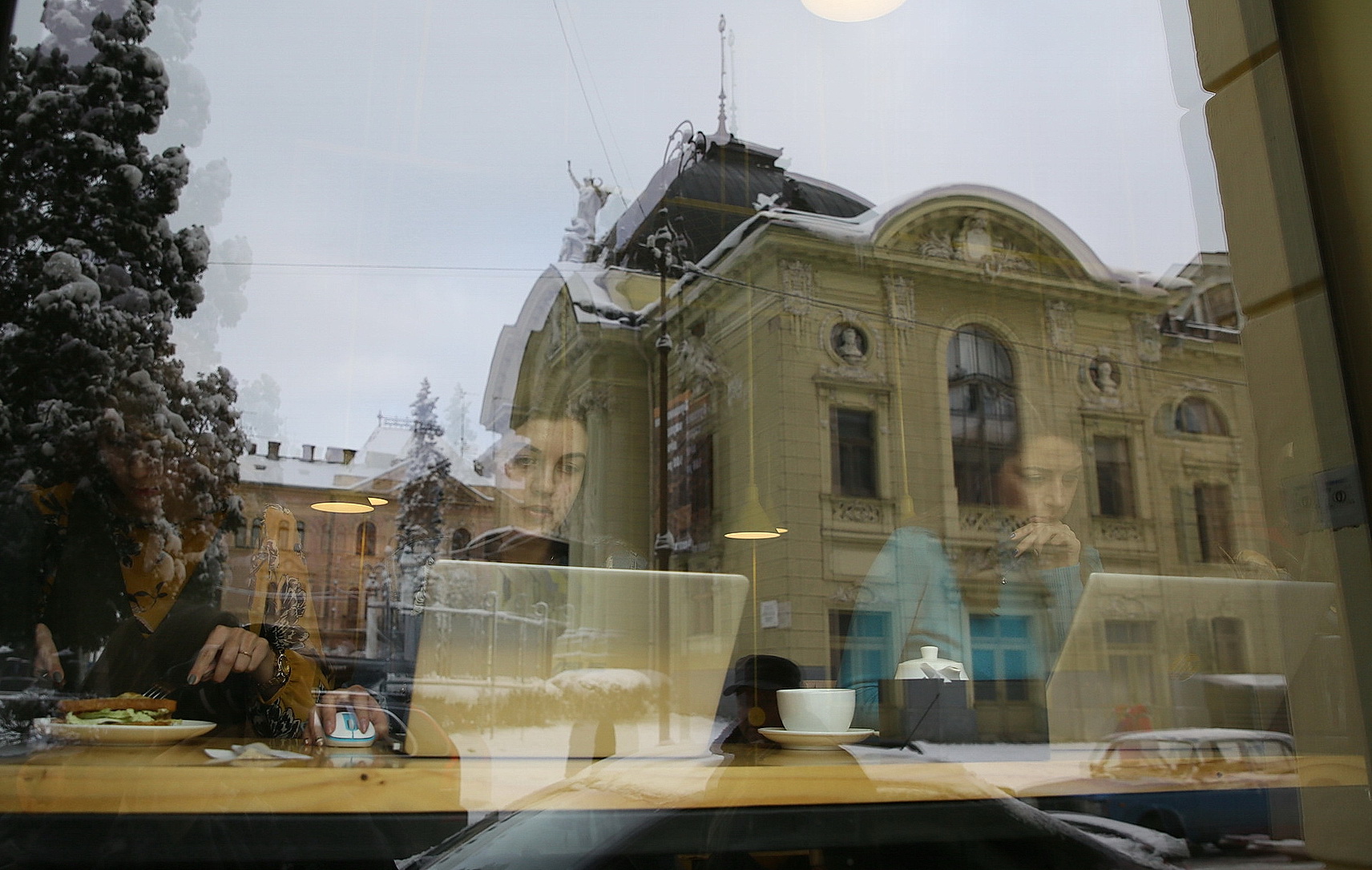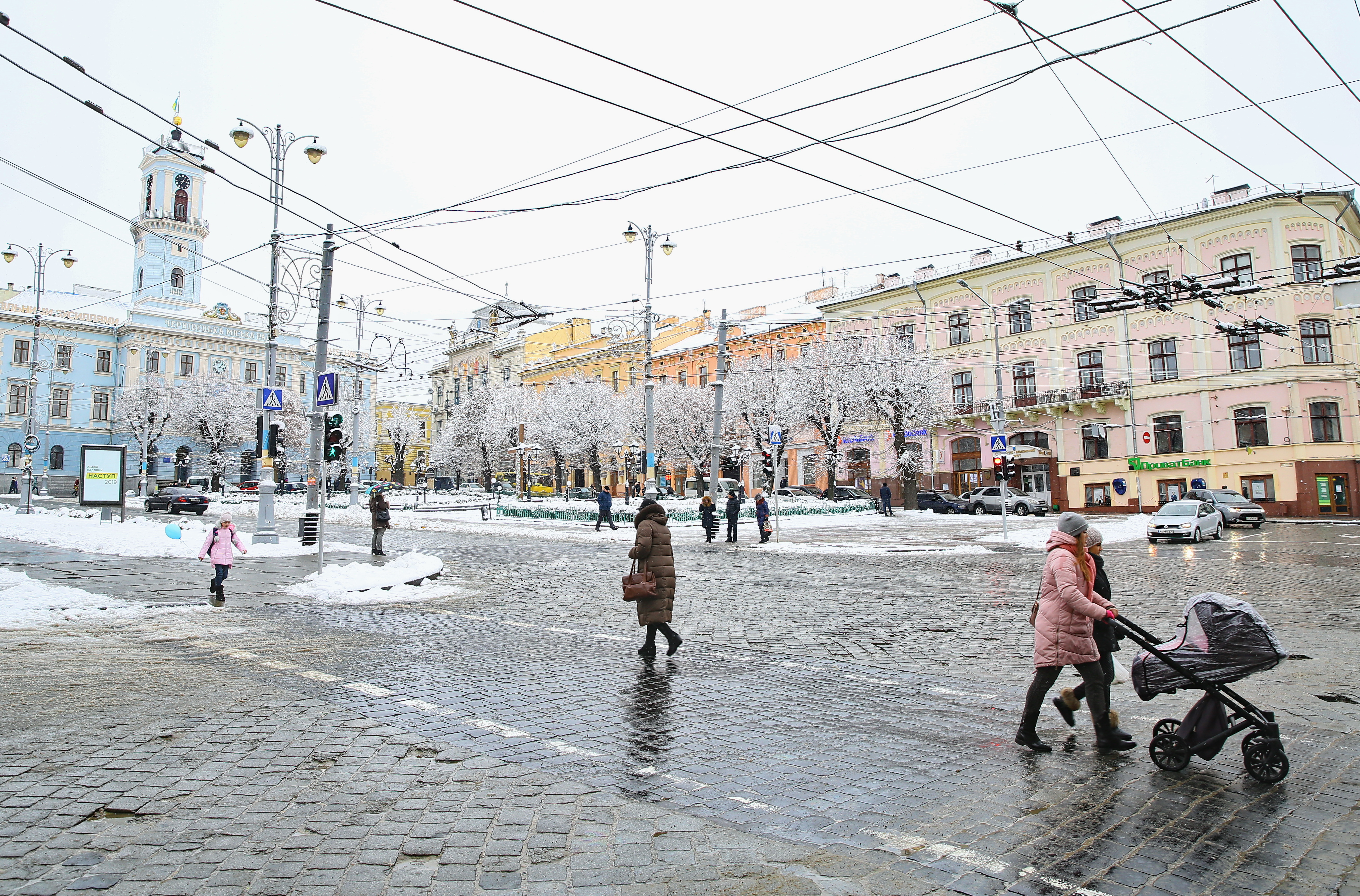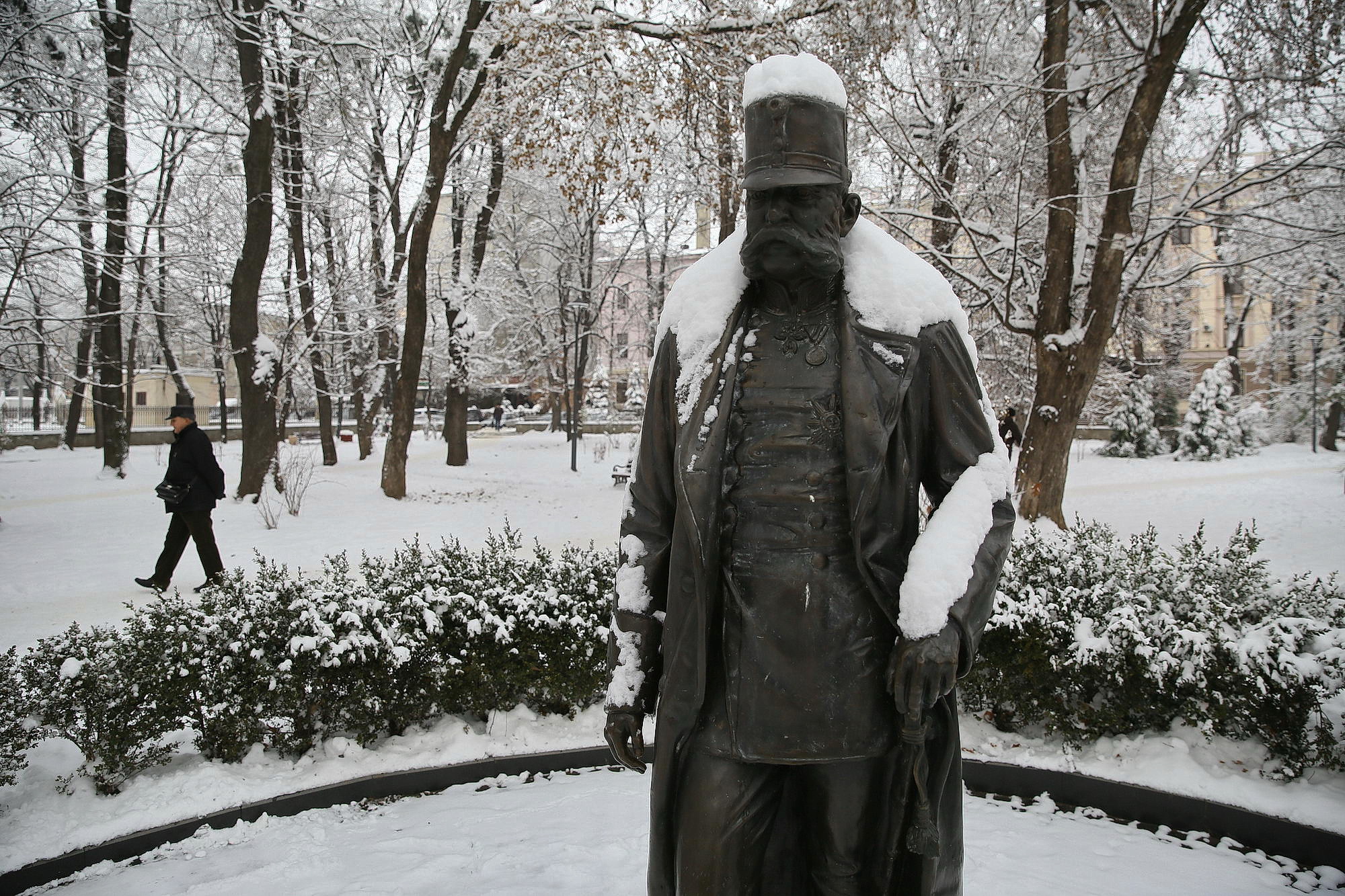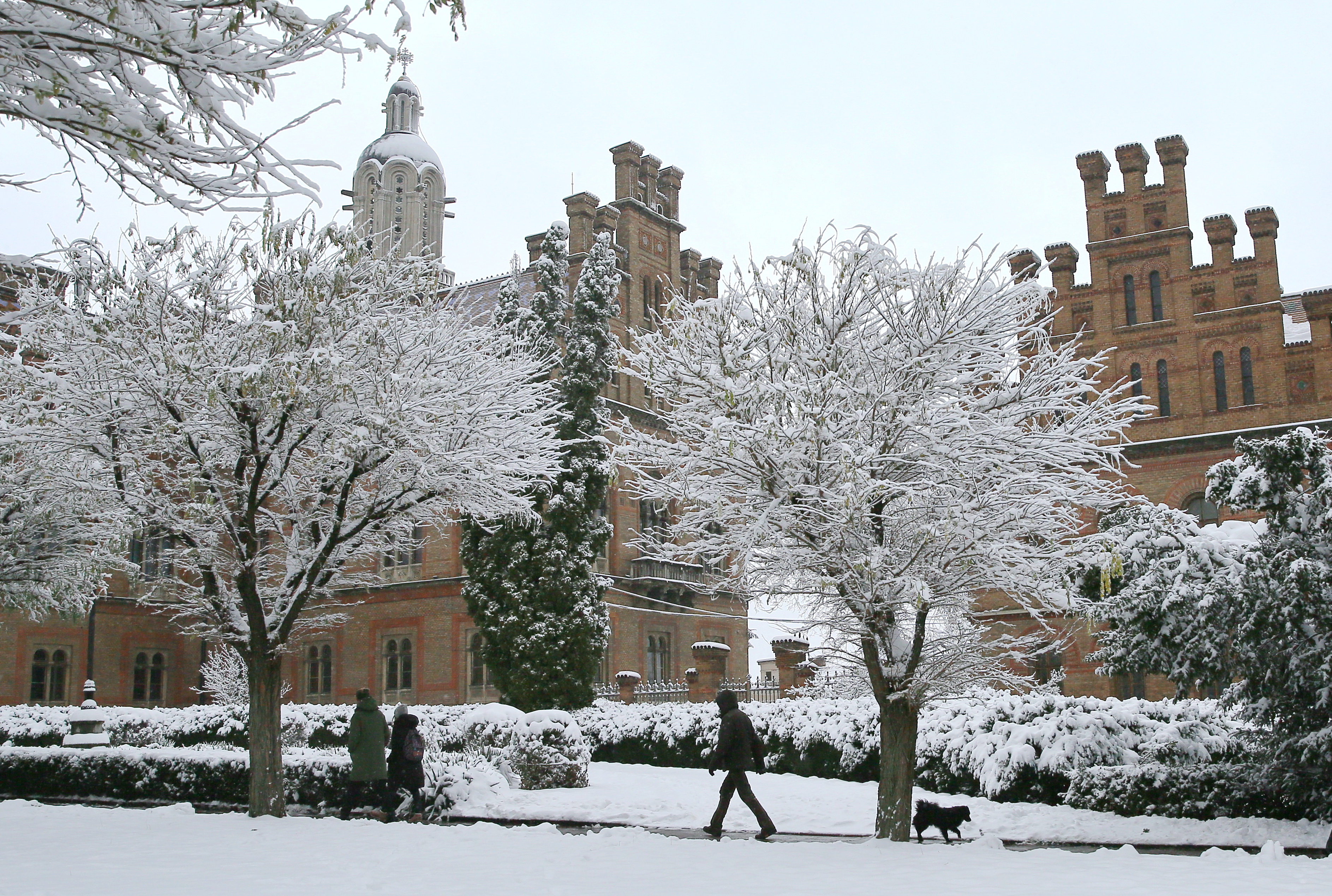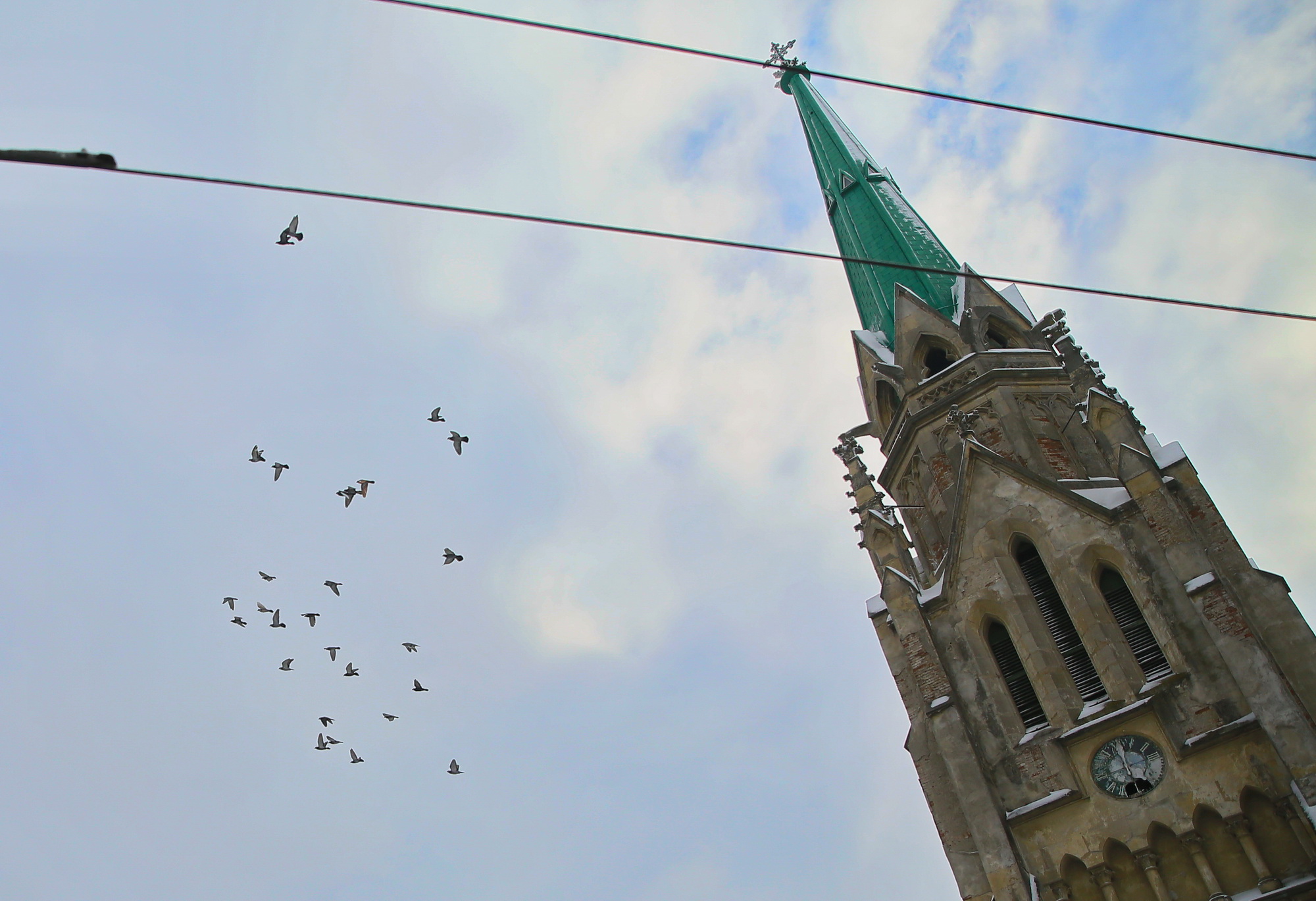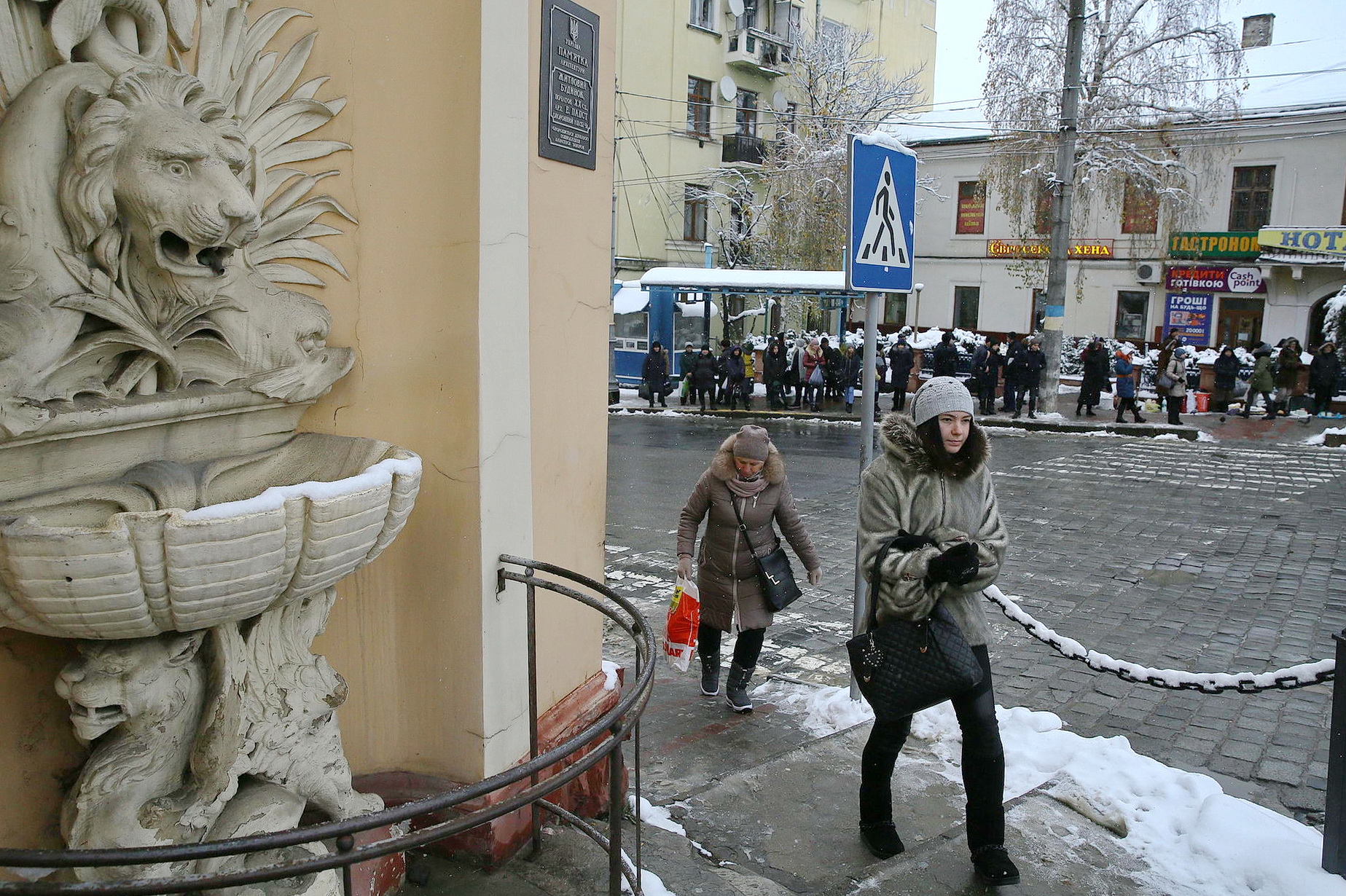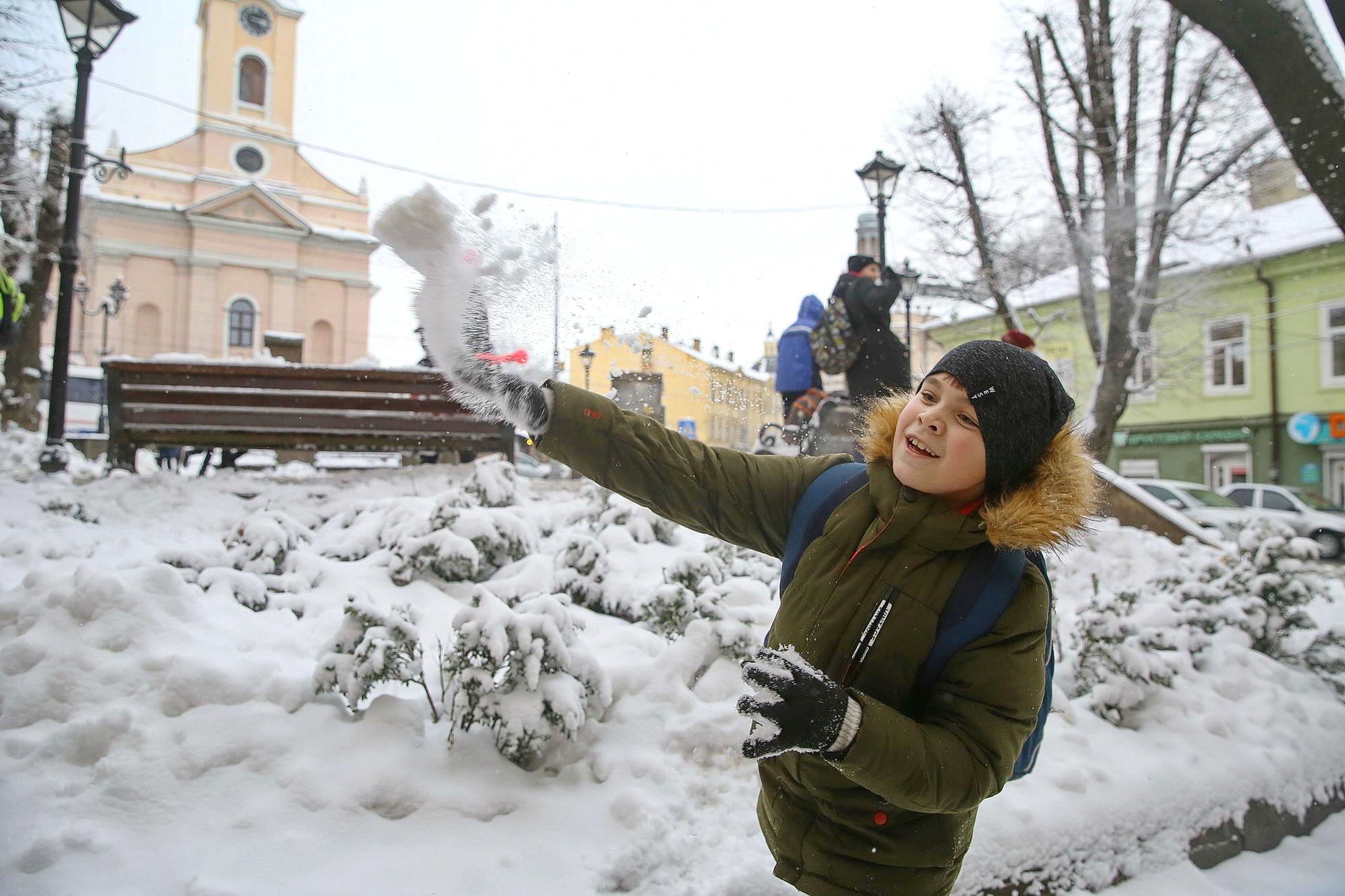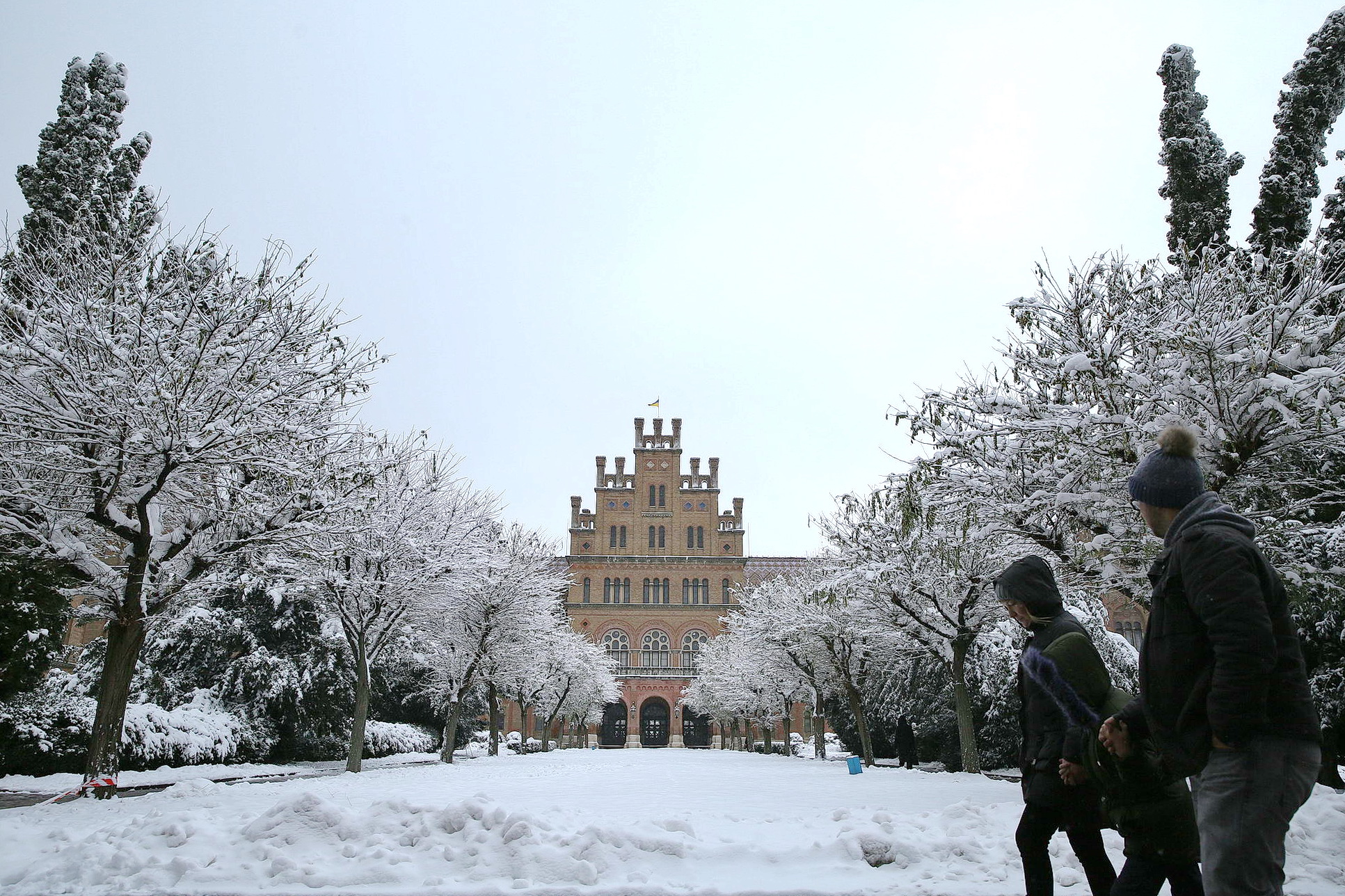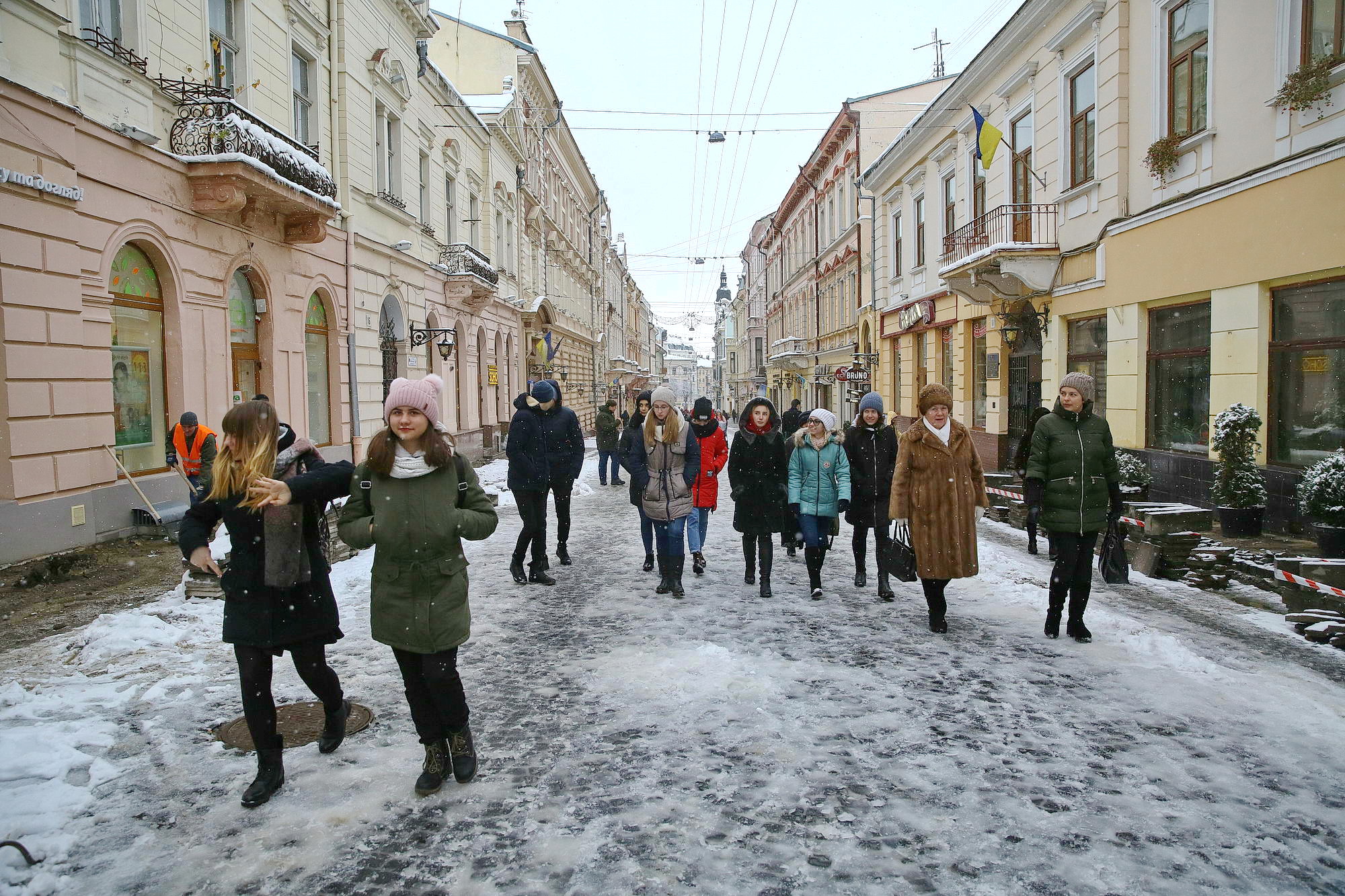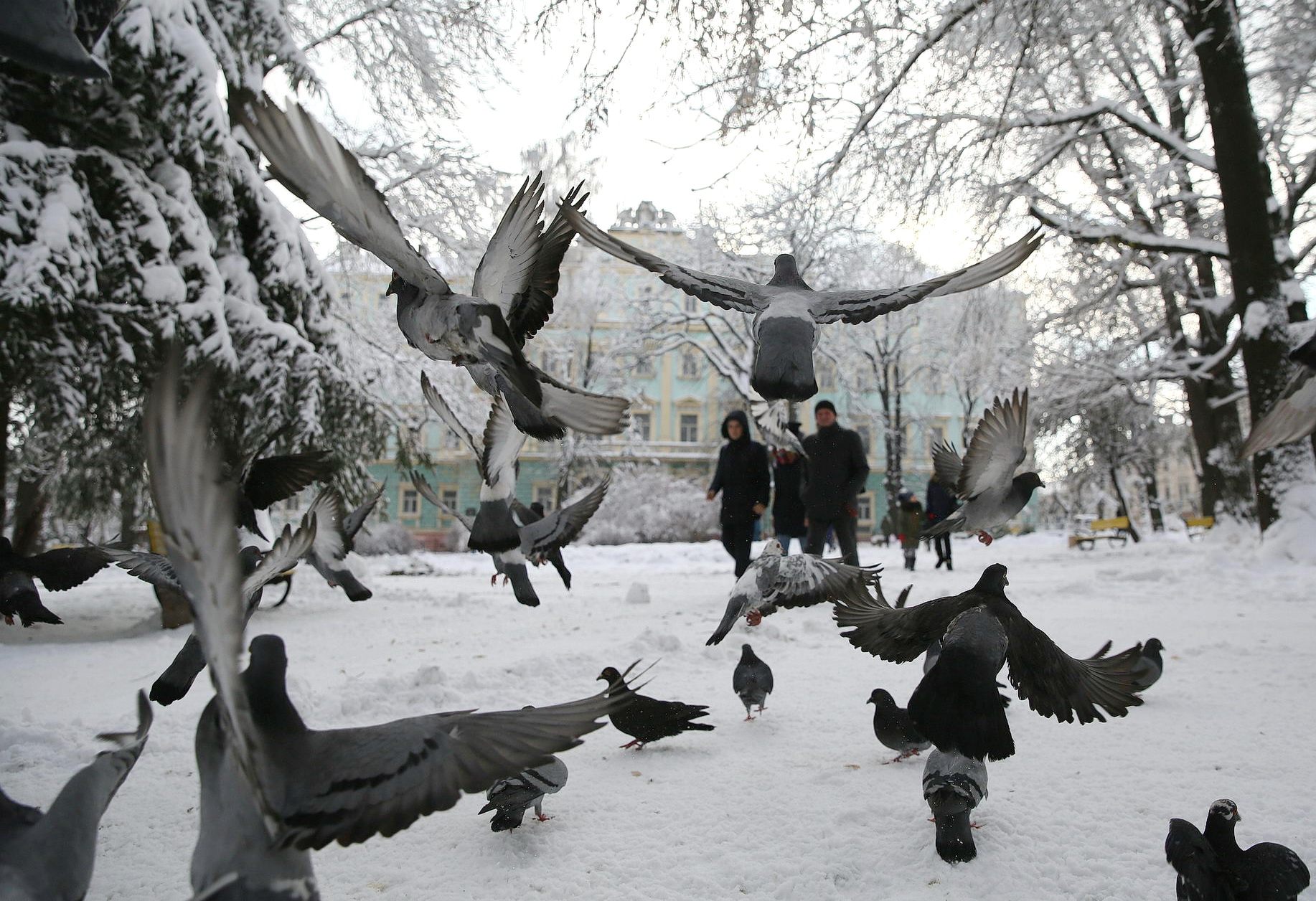CHERNIVTSI, Ukraine — This might be the place, culturally, where Eastern Europe ends and Central Europe begins.
When 19th century Austrians traveling through the vast rural areas of the eastern part of their Austro-Hungarian Empire came upon the cosmopolitan city of Chernivtsi, they felt like they were in “Little Vienna,” a place close to home.
Today, a century after Austrian rule ended, Chernivtsi, a city of 300,000 residents in far western Ukraine, located 520 kilometers southwest of Kyiv, embraces its shared history with Austria.
150 years of building
“It’s certainly not flattery nor an artificial embellishment of my condition, when I assure you that I am happy to be back on the Austrian land,” wrote Austrian professor Joseph Rohrer about Chernivtsi in 1802, when he traveled through the city on his way from Turkey to Vienna.
Rohrer’s 1804 book of travel notes was discovered by Sergii Osachuk, who helped to publish it in Ukrainian this year.
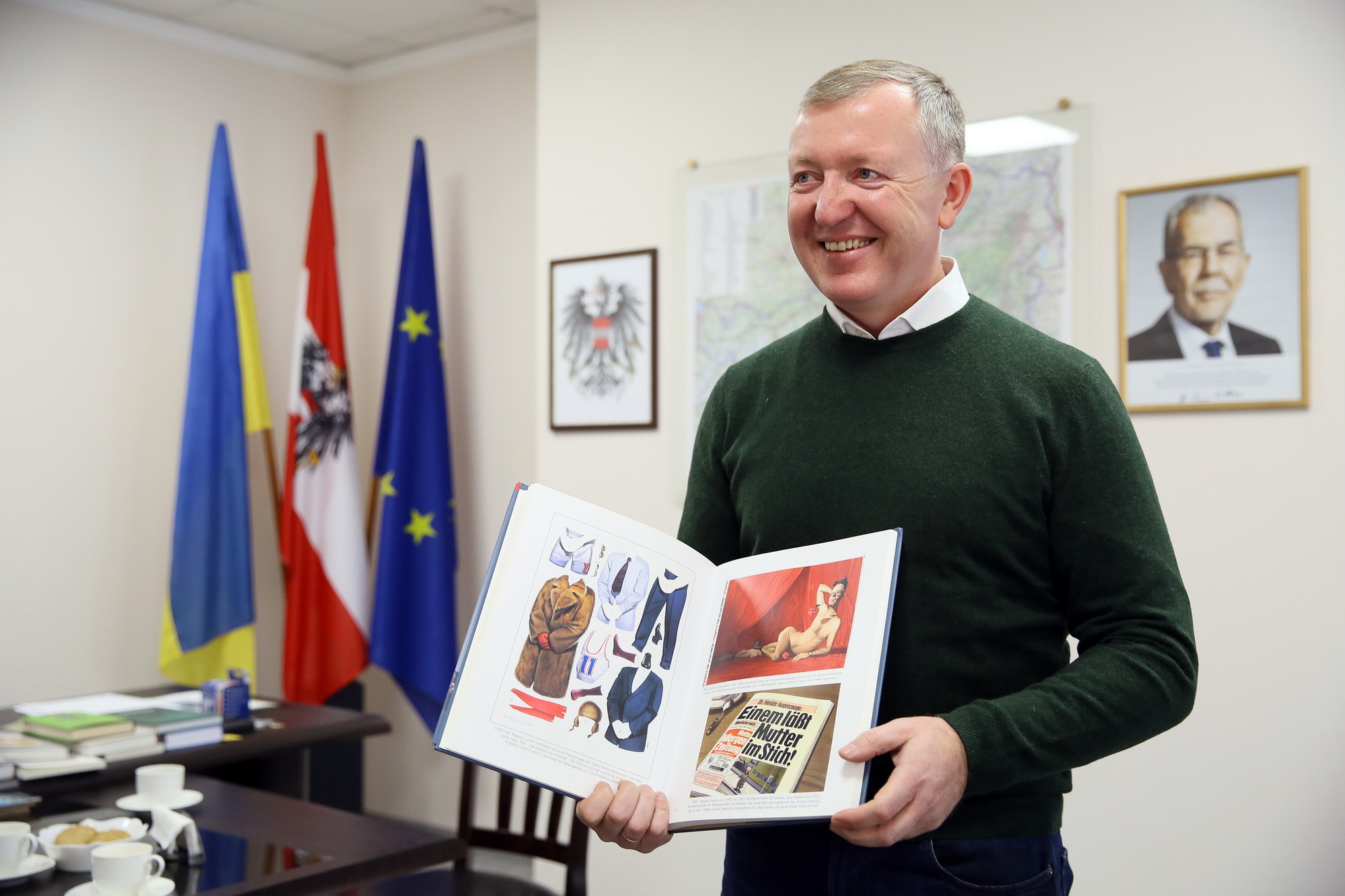
Sergii Osachuk speaks with the Kyiv Post at the Honorary Consulate of Austria in Chernivtsi on Nov. 27, 2018. The consulate opened in 2015 and coordinates many Austrian-Ukrainian cultural projects. (Oleg Petrasiuk)
Osachuk, 46, the honorary consul of Austria in Chernivtsi, says that Rohrer’s memoirs show the dynamics with which the city developed under Austrian rule. From 2,000 people in 1774, when the Austrian monarchy established control over Chernivtsi, the city grew to 80,000 people and included 10 nationalities and various religious faiths before World War I. After the war, in 1918, the Austro-Hungarian Empire that came into being in 1867 disintegrated.
“The Austrians gave the city a century and a half of development and peace. It was the second birth for Chernivtsi: they gave a spirit and a taste for life to this city,” Osachuk says.
The state authorities represented by the Bukovinian Landtag (regional parliament) put it upon the civil society to develop the city by inspiring and creating opportunities, Osachuk says. The 1914 register listed 1,400 nongovernmental organizations in Chernivtsi.
“My favorite is The Society for the Fight Against Slavery in Africa,” Osachuk says. “It indicates the maturity of the civil society, local elites. They felt themselves as citizens of the world, beyond the bounds of state, beyond the bounds of Europe.”
Then: Since the 19th century the Central Square in Chernivtsi was home to the City Hall and the Belle Vue hotel pictured first on the left. (Facebook/Edward Turkiewicz)
Now: Today the City Hall still stands on the Central Square and the building first from the left is now the Belle Vue media center, both seen here on Nov. 27, 2018 in Chernivtsi. (Oleg Petrasiuk)
Since Chernivtsi and its region became part of Romania in 1918, the city kept communicating with Austria through the Austrian consulate in the city. When the region finally became a part of Soviet Ukraine in 1944, all regional contacts with Austria were lost.
After the proclamation of Ukraine’s independence in 1991, Austria was among the first countries to open a consulate in Kyiv, which was turned into an embassy in 1992. The honorary consulate in Chernivtsi was opened in 2015.
But already in 1992, Austria’s Vice Chancellor Erhard Busek initiated a program of regional cooperation between the two countries. This way Chernivtsi acquired a twin-city partnership with the city of Klagenfurt in the south of Austria, over a 1,000 kilometers apart.
City of dead poets
Klagenfurt seemed like a random choice for a twin city of Chernivtsi, but over time the two cities found a lot in common. The most symbolic connection they shared was one between the German-language poets: Paul Celan who was born in Chernivtsi and Ingeborg Bachmann, born in Klagenfurt.
The two had a love affair that was reflected in their correspondence between 1948 and 1961. Just like Rohrer’s travel notes, these letters were translated and published in Ukrainian by the Books 21 publishing house in Chernivtsi with the financial backing from Austrian agency OeAD’s office in Lviv.
Chernivtsi University professor Petro Rychlo, 68, who translated Celan’s letters, also works on his poem collections. Seven were already published, and by 2020, the 100th anniversary of Celan’s birth, Rychlo plans to release all ten.
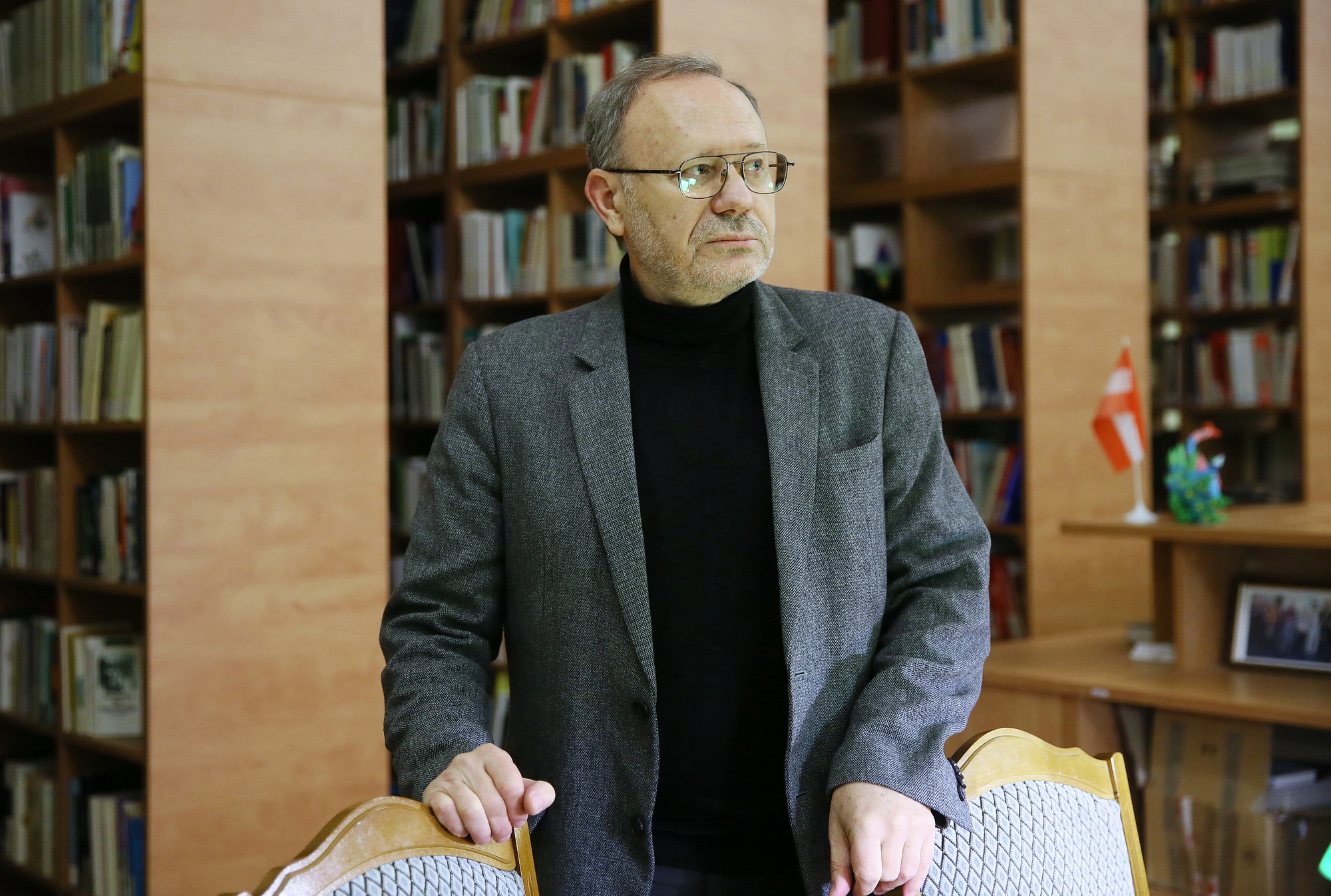
Professor Petro Rychlo speaks with the Kyiv Post at the Austrian Library in Chernivtsi on Nov. 28, 2018. It was founded in 1992 by the Austrian OeAD office. (Oleg Petrasiuk)
“These authors should be translated regardless of their connection to Chernivtsi because they are simply great poets,” Rychlo says. “But this biographical trace is an additional incentive for translating them because it’s interesting to know what they have written about us, how these authors with a different mentality and psychology saw us.”
Chernivtsi has the Paul Celan Literature Center that holds cultural events and promotes literature from Chernivtsi. On its walls, there are photographs of dozens of prominent German-language poets and writers that were born or lived in the city, like Rosa Ausländer, Karl Emil Franzos and Georg Drozdowski.
The Paul Celan Literature Center also serves as an office for Meridian Czernowitz — an international poetry festival that focuses on contemporary German-language and Ukrainian poetry. But when it started in 2010, Meridian Czernowitz was also discovering the lost poets of Chernivtsi.
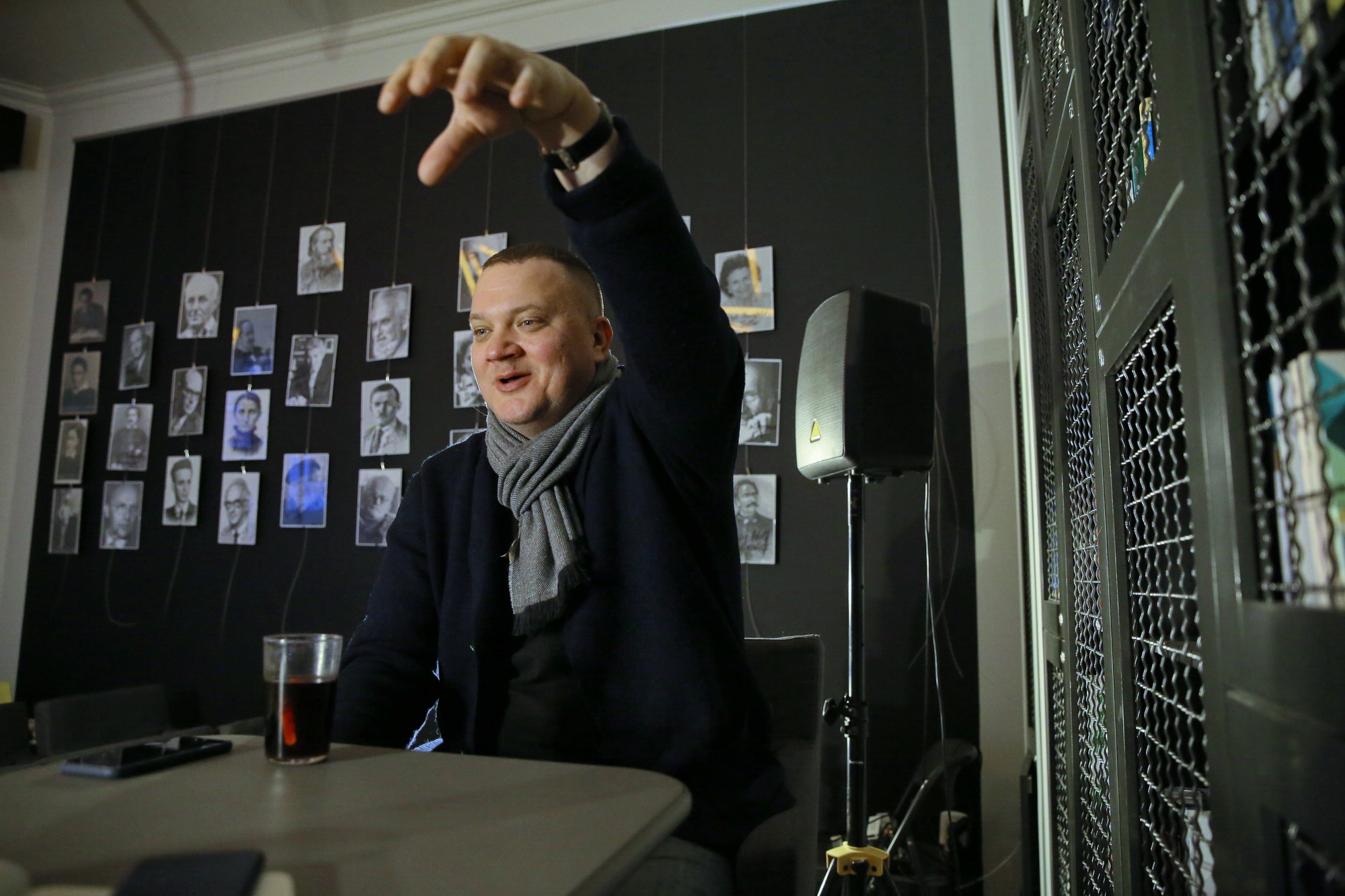
Svyatoslav Pomerantsev, president of Meridian Czernowitz festival, speaks with the Kyiv Post at the Paul Celan Literature Center on Nov. 27, 2018. In the background, there are photographs of poets and writers that were born or lived in Chernivtsi. (Oleg Petrasiuk)
“We discovered these stars of world literature from Chernivtsi only in the 2000s. The Soviet authorities kept silent about them,” said the president of Meridian Czernowitz Svyatoslav Pomerantsev, 44. “And the first big story about the first festival published in Europe was called ‘Die Stadt der Toten Dichter’ — ‘The City of Dead Poets.’”
Contemporary festival
Evgenia Lopata, Meridian Czernowitz’s 24-year-old director, says she found out about Celan and Ausländer only from her school teachers who came from Germany. She says that the young generation in Chernivtsi doesn’t know much about this legacy, and that’s why the festival aims to make it more relevant.
“There is great research and publishing work being done to revive this legacy, but our work has a different format. We organize mass cultural events. It gives the city residents a chance to learn more about their city and themselves,” Lopata says.
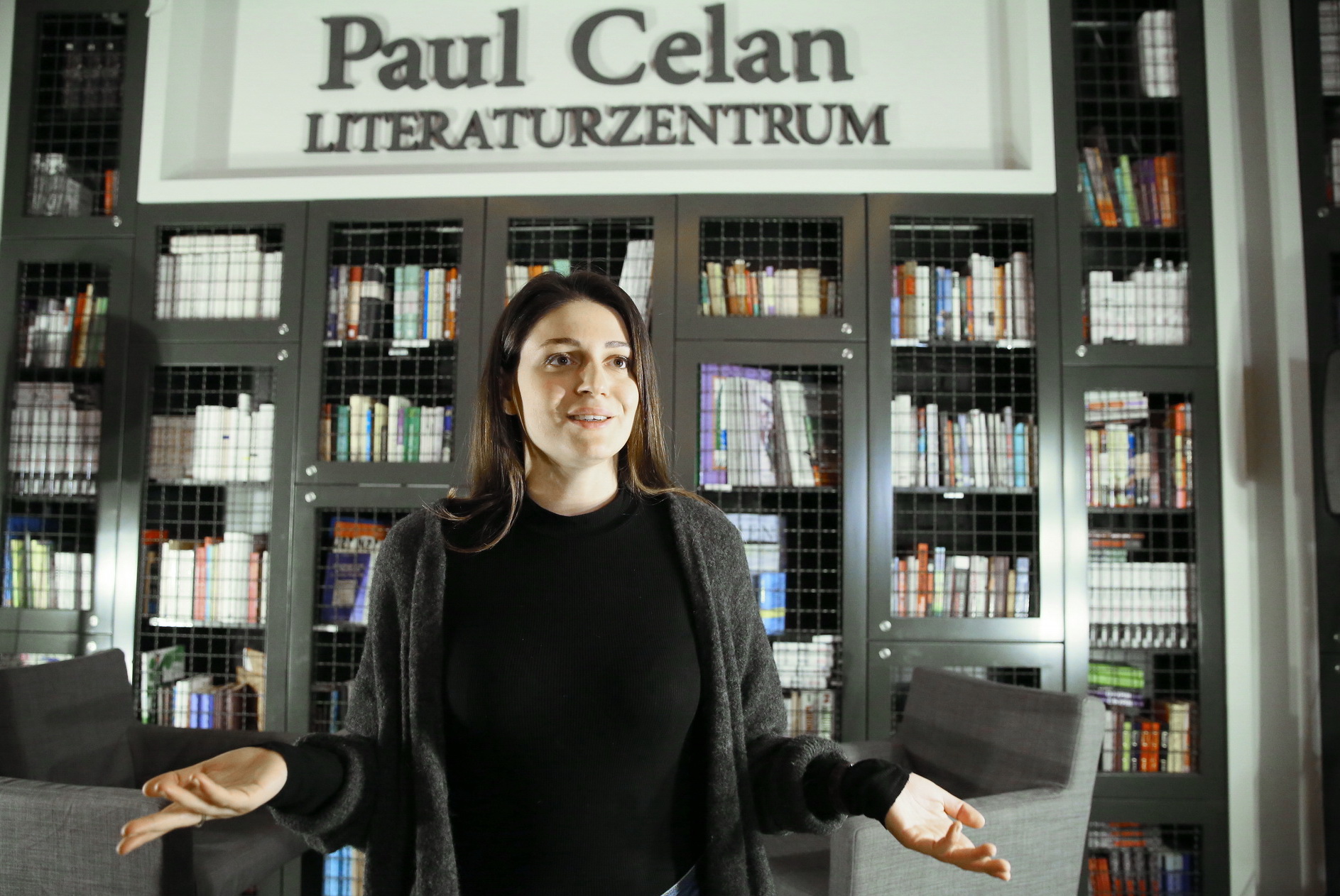
Evgenia Lopata, director of Meridian Czernowitz festival, speaks with the Kyiv Post at the Paul Celan Literature Center in Chernivtsi on Nov. 27, 2018. (Oleg Petrasiuk)
Meridian Czernowitz takes place in Chernivtsi every September and holds three to four days of poetry readings, book presentations and discussions. The festival invites poets and writers from Ukraine and German-speaking Austria, Germany and Switzerland. The performances by Austrian poets are funded by the Austrian Cultural Forum in Kyiv, the city of Vienna and the state of Carinthia, where Chernivtsi’s twin city of Klagenfurt is located.
Lopata says that many Austrian tourists come to Chernivtsi specifically for the festival. Andreas Wenninger from the Austrian Cooperation Office in Lviv says that Austrians have a special sentiment for the city that drives them to support different cultural projects there.
Then: People walk on the square in front of the first theater in Chernivtsi at the beginning of the 20th century. The theater was built in 1905. (Facebook/Edward Turkiewicz)
Now: Today Chernivtsi’s first theater is called the Olha Kobylyanska Theater and is recognized as an architectural monument of national significance. (Oleg Petrasiuk)
“I think it’s great that Austria and Germany have been supporting our festival for 10 years. Even a small contribution demonstrates that it’s important for them, that they care about their own,” says Lopata.
Meridian Czernowitz also started functioning as a literary agency and publishes books by contemporary Ukrainian authors like Serhiy Zhadan, Irena Karpa and Yuriy Andrukhovych. Promoting the poets abroad “strengthens the cultural bridge between Ukraine and Europe.”
But the primary goal of Meridian Czernowitz has always been “to return Chernivtsi to the cultural map of Europe.” And although Lopata feels they are close to reaching that goal, the festival in Chernivtsi will keep on going.
“For me as a resident of Chernivtsi it’s very important to support this spirit of literature and let it move through the small streets of the city. It should have space to roam at least three or four days a year as if it’s still pre-(World War I) times,” says Lopata.
